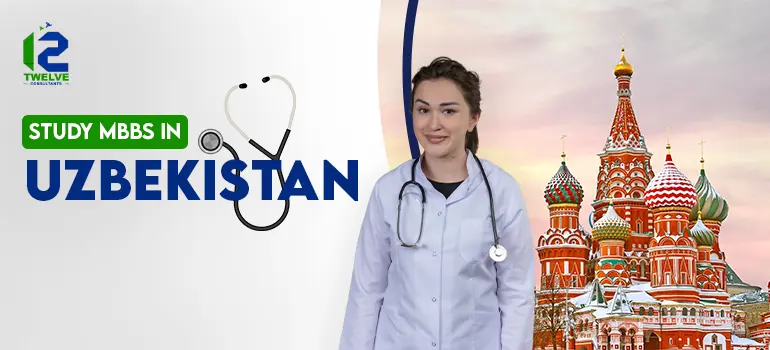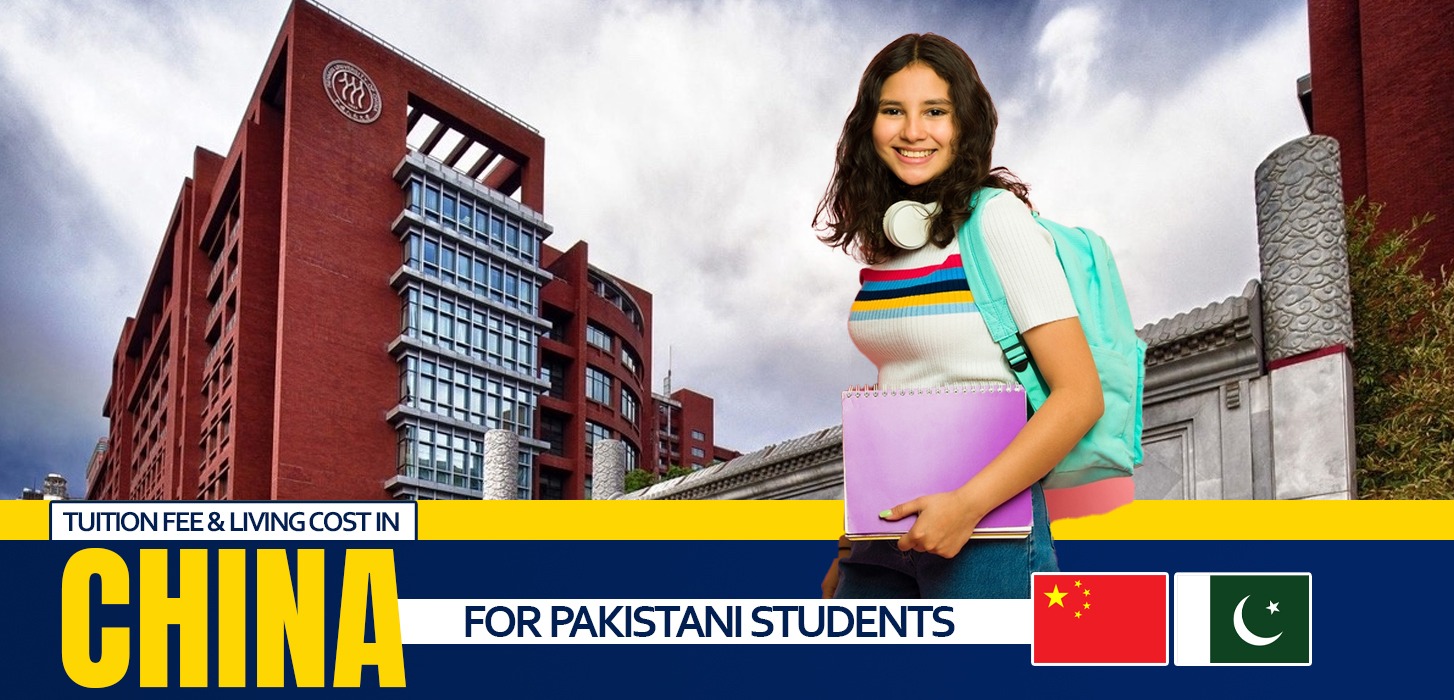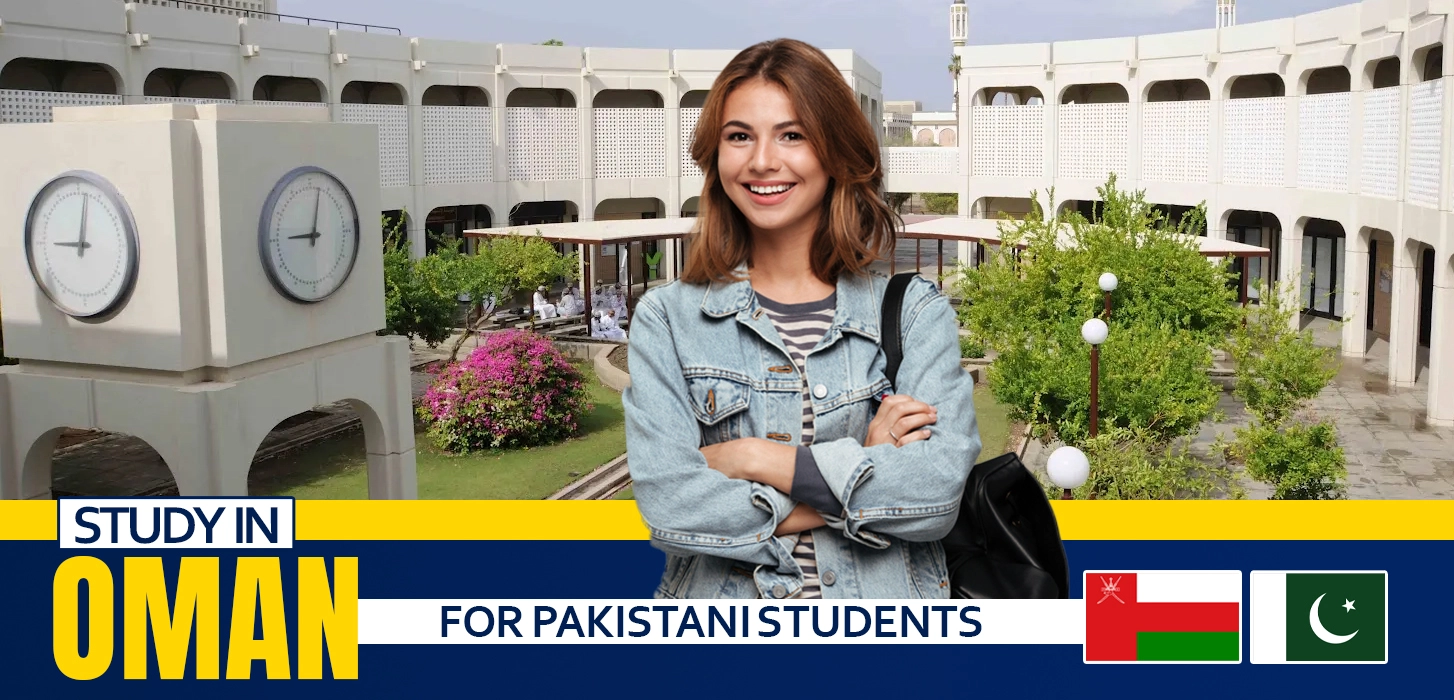
Study MBBS in Uzbekistan 2025-26 | Tuition Fee | Visa Guide
Uzbekistan, with its rich cultural heritage and growing educational sector, has become a magnet for international students pursuing a career in medicine. Understanding the intricate admission criteria and procedures is vital for aspiring MBBS students. This guide provides a comprehensive overview of the admission criteria and application process for studying MBBS in Uzbekistan.
| Location | Central Asia, Historic Silk Road Region. |
| Currency | Uzbekistani Som (UZS). |
| Language | English, Russian, Uzbek (Varies by Program). |
| Work Allowed | Part-time jobs available for students. |
| Global Recognition | Degrees recognized internationally. |
| Tuition Fees | Affordable, Varies by Program and University. |
| Accommodation | Costs vary, $100 – $400/month. |
| Living Expenses | Moderate, $200 – $500/month. |
| Intakes | Mainly September, Some in February. |
| Visa Processing | Typically 2-3 months. |
| Application Fee | Varies, Usually $50 – $150. |

Tashkent Medical Academy: Tashkent Medical Academy is a leading medical institution in Uzbekistan, known for its high-quality education and research. The academy offers a comprehensive MBBS program with a focus on theoretical knowledge and practical skills. Students benefit from modern facilities and experienced faculty members. Average Tuition Fee: $2,500 – $4,000 per year.
Samarkand State Medical Institute: Samarkand State Medical Institute is one of the oldest and most prestigious medical universities in Uzbekistan. It offers a well-rounded MBBS program with an emphasis on clinical training and research. The institute is known for its historical significance and modern approach to medical education. Average Tuition Fee: $2,000 – $3,500 per year.
Andijan State Medical Institute: Andijan State Medical Institute is recognized for its commitment to healthcare education and community service. The institute’s MBBS program focuses on primary care and public health. Students have opportunities for practical training in local hospitals and clinics. Average Tuition Fee: $2,200 – $3,000 per year.
Bukhara State Medical Institute: Bukhara State Medical Institute offers a comprehensive medical curriculum with a strong emphasis on practical skills and patient care. The institute’s MBBS program prepares students for diverse medical careers, including general practice and specialized fields. Average Tuition Fee: $2,000 – $3,200 per year.
Karshi State Medical Institute: Karshi State Medical Institute provides a supportive learning environment for medical students. The institute’s MBBS program covers fundamental medical sciences and clinical rotations. Students engage in research and community health projects. Average Tuition Fee: $2,300 – $3,500 per year.
TMA Medical College: TMA Medical College is affiliated with Tashkent Medical Academy and offers a practical-oriented MBBS program. The college emphasizes hands-on training and skill development. Students benefit from small class sizes and personalized attention from faculty members. Average Tuition Fee: $2,400 – $3,800 per year.
Fergana State University: Fergana State University offers a diverse medical education program, integrating traditional and modern medical practices. The university’s MBBS curriculum focuses on preventive medicine and community healthcare. Students participate in clinical rotations in affiliated hospitals. Average Tuition Fee: $2,100 – $3,300 per year.
Namangan Institute of Engineering and Technology: Namangan Institute of Engineering and Technology offers a unique MBBS program that combines medical sciences with technology. The institute emphasizes the use of advanced medical equipment and IT tools in healthcare. Students gain practical experience in modern medical laboratories. Average Tuition Fee: $2,300 – $3,600 per year.
Navoi State Mining Institute: Navoi State Mining Institute provides a specialized medical education program with a focus on occupational health and safety. The institute’s MBBS curriculum includes training in industrial medicine and workplace health management. Students learn to address health issues in various work environments. Average Tuition Fee: $2,200 – $3,400 per year.
Urgench State University: Urgench State University offers a comprehensive MBBS program with a focus on rural healthcare and community medicine. The university collaborates with local healthcare organizations to provide practical training opportunities. Students learn to address healthcare challenges in rural and underserved areas. Average Tuition Fee: $2,000 – $3,200 per year.
| University Name | Average Tuition Fee Range (per year) |
|---|---|
| Tashkent Medical Academy | $2,500 – $4,000 |
| Samarkand State Medical Institute | $2,000 – $3,500 |
| Andijan State Medical Institute | $2,200 – $3,000 |
| Bukhara State Medical Institute | $2,000 – $3,200 |
| Karshi State Medical Institute | $2,300 – $3,500 |
| TMA Medical College | $2,400 – $3,800 |
| Fergana State University | $2,100 – $3,300 |
| Namangan Institute of Engineering and Technology | $2,300 – $3,600 |
| Navoi State Mining Institute | $2,200 – $3,400 |
| Urgench State University | $2,000 – $3,200 |
Eligibility Requirements
Prospective students aiming for an MBBS degree in Uzbekistan generally need to have completed their secondary education with a focus on science subjects, including Biology, Chemistry, and Physics. Proficiency in the English language is often a prerequisite, demonstrated through standardized tests such as IELTS or TOEFL. Universities might also set specific minimum percentages in these subjects to establish eligibility.
Entrance Exams
Entrance exams are a common feature of the admission process in Uzbekistani medical universities. These exams assess applicants’ knowledge in subjects like Biology, Chemistry, and Physics. Excelling in these exams is crucial, significantly enhancing the likelihood of securing admission. Diligent preparation and a strong performance in these tests can greatly influence the selection process.
Application Procedure
Applying for MBBS programs in Uzbekistan typically involves completing an online application form and submitting essential documents. These documents often include academic transcripts, certificates, a valid passport, and proof of language proficiency. It is imperative for applicants to thoroughly review the document requirements of the chosen university and ensure timely and accurate submission to avoid complications.
Recognition of Degrees
Before finalizing a choice of university, it is essential to verify the recognition of the degree offered. Opting for universities recognized by international medical bodies, such as the World Health Organization (WHO), ensures the degree’s acceptance globally. Recognition by national medical councils is also important for future licensure and practice opportunities in various countries.
Tuition Fees and Scholarships
Uzbekistan is known for offering affordable tuition fees for international students. However, these fees can vary between universities and programs. Prospective students should research the fee structures of different institutions to make an informed decision. Additionally, exploring scholarship options based on academic merit or other criteria can significantly ease the financial burden of education.
Visa Requirements and Residence Permit
Upon acceptance into a Uzbekistani university, students need to apply for a student visa. This process involves providing necessary documents, including the admission letter, proof of financial means, and a valid passport. After arriving in Uzbekistan, students are required to obtain a student residence permit. Adhering to visa and residence permit regulations is crucial to ensure legal compliance during their studies.
Accommodation and Living Expenses
Uzbekistan offers various accommodation options, including university dormitories and private apartments. Students should explore these options based on their budget and preferences. Additionally, budgeting for living expenses, covering aspects such as food, transportation, and personal needs, is essential for a financially stable and comfortable stay throughout the academic tenure.

Admission Process:
Begin by applying to a recognized medical university in Uzbekistan. Ensure you meet all academic requirements and prepare necessary documents, including transcripts, recommendation letters, and a personal statement. Some universities might require entrance exams or interviews.
Acceptance Letter and Confirmation of Enrollment:
Once accepted, you’ll receive an official acceptance letter from the university. This letter confirms your enrollment and is crucial for your visa application.
Student Visa Application Requirements:
Prepare documents such as a valid passport, completed visa application form, university acceptance letter, proof of financial means to cover tuition and living expenses, travel insurance, and a medical certificate. Requirements can vary, so check the official website of the Uzbek embassy or consulate in your country.
Language Proficiency and Preparatory Courses:
Ensure you meet the university’s language proficiency requirements. Some universities offer preparatory courses for international students to enhance their language skills before starting the main program.
Visa Application Submission:
Submit your visa application and documents to the nearest Uzbek embassy or consulate. Adhere to deadlines and ensure all information is accurate and complete.
Visa Interview (if required):
Prepare for a visa interview if it’s part of the application process. Be ready to discuss your plans for studying in Uzbekistan and your future intentions.
Financial Planning and Scholarships:
Explore scholarship opportunities and plan your finances to cover tuition, accommodation, food, transportation, and personal expenses during your stay in Uzbekistan.
Health Insurance and Medical Check-up:
Acquire health insurance accepted in Uzbekistan. Some universities might require a medical check-up upon arrival.
Arrival and Orientation:
Attend the university’s orientation program upon arrival. Familiarize yourself with the campus, local culture, and essential facilities. Register with local authorities as required.
Student Support Services:
Familiarize yourself with the university’s student support services, including academic advising, counseling, and accommodation assistance.
Stay Updated with Regulations:
Regularly check the official website of the Uzbek Ministry of Foreign Affairs and the university for the latest immigration updates. Regulations can change, so staying informed is crucial.
To be eligible for MBBS programs in Uzbekistan, students generally need to meet the following criteria:
- Completion of higher secondary education with a strong background in Science (Biology, Chemistry, and Physics).
- Proficiency in English or Russian languages, as many medical courses are taught in these languages.
- Meeting specific requirements set by the chosen university, such as a minimum GPA or entrance exam score.
- Some universities might require a qualifying score in entrance exams like NEET (National Eligibility cum Entrance Test) for Indian students.
MBBS programs in Uzbekistan typically have a duration of 5 to 6 years. The curriculum is well-structured, focusing on theoretical knowledge, practical training, and clinical rotations. The first few years emphasize basic medical sciences, followed by pre-clinical and clinical studies. Students also undergo practical training in hospitals and clinics to gain hands-on experience in patient care.
Yes, international students studying in Uzbekistan are generally allowed to work part-time during their studies. However, there are regulations regarding the number of hours students can work per week, typically ranging from 10 to 20 hours. Students must obtain a work permit from the local authorities and follow the rules and guidelines provided by their university and the Uzbek government.
Yes, MBBS degrees obtained from reputable medical universities in Uzbekistan are internationally recognized. Graduates can pursue further education or practice medicine in various countries around the world. It is essential to choose universities that are accredited and recognized by international medical bodies and organizations.
The tuition fees for MBBS programs in Uzbekistan vary depending on the university and the program’s duration. On average, the annual tuition fees range from $2,500 to $5,000 for international students. Living expenses, including accommodation, food, transportation, and miscellaneous expenses, are also relatively affordable, averaging around $200 to $400 per month, depending on the city and lifestyle.

Latest Post
Lithuania has become an attractive destination for Pakistani students seeking...
Many Pakistani students dream of studying abroad but are often...
According to the Ministry of Education and Research report, In...
Pursuing higher education in New Zealand is a top destination...
The UK has always been a student-preferred destination for gaining...
Understanding the tuition fee & living cost in China is...
Hungary is an increasingly popular choice for Pakistani students pursuing...
Studying in Oman is an excellent opportunity for Pakistani students...










